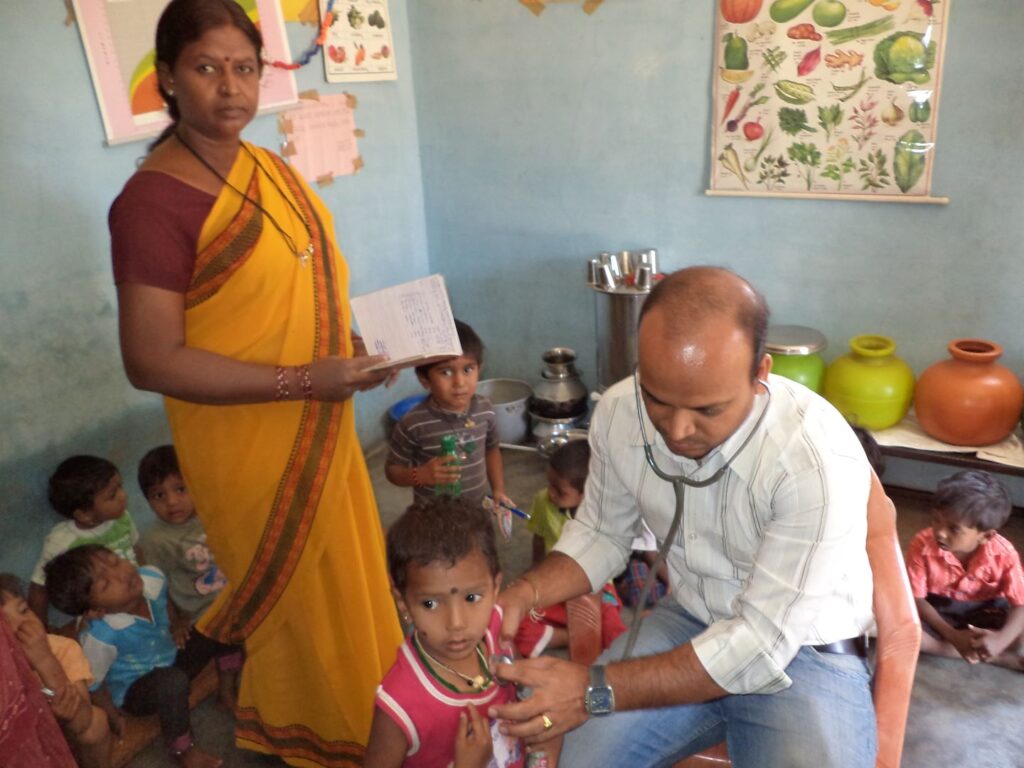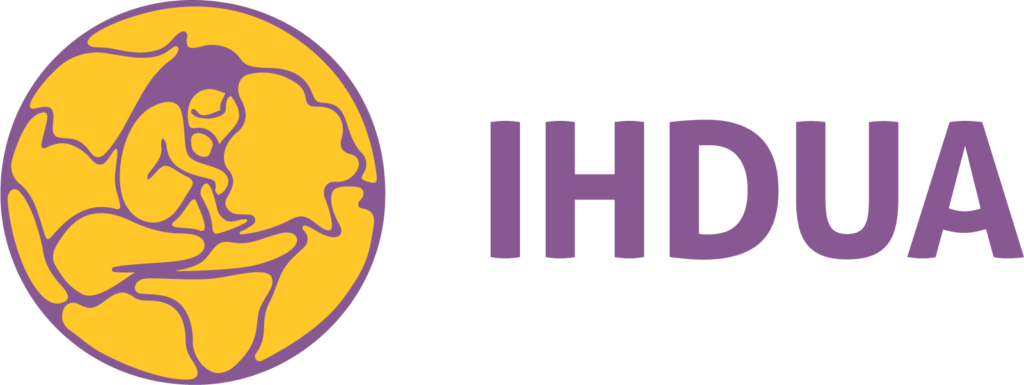HEALTH & HYGIENE
Reaching all parts of rural and backward areas!
A brief
Hygiene is a set of practices performed to preserve health. According to the World Health Organization (WHO), “Hygiene refers to conditions and practices that help to maintain health and prevent the spread of diseases.”
Some of the practices we implemented successfully:
A. Nirmala Grameena Yojana
This is a National Program aimed at improving hygiene and sanitation in rural areas. Under this program, families of rural areas are assisted for construction of toilets (2 pits).
The Zilla Panchayaths of the respective Districts are funded by the State. The Zilla Panchayath in-turn allots it to the taluk level (taluk Office) and they in turn will allot it to the Panchayaths.
Each family who are below poverty line (Green ration card holders) are paid Rs.1,200/- for construction of toilets and the others (Red Card holder) are paid Rs.500/- . This will be paid only after completion of the toilets.
The Trust has given materials like cement, closets, pee trap, pipes, cement ventilator, door and RCC slabs for covering the pits. Local masons have been trained on the construction of these toilets. The remaining materials like bricks, sand, red soil, skilled and unskilled labour is provided by the beneficiaries.
The above materials have been given to the beneficiaries for construction, as the beneficiary cannot afford to buy the above materials, which is being provided by the Trust. So far the Trust has constructed more than 500 individual toilets so far with help of capart and Zilla panchayath.
B. Sarala Ole
In most of the houses in rural areas, Oles are constructed without a chimney or an outlet pipe for smoke to go out of the kitchen. As there is no outlet for the smoke to go, the entire house is filled with smoke and this leads to respiratory tract infection for the entire family.
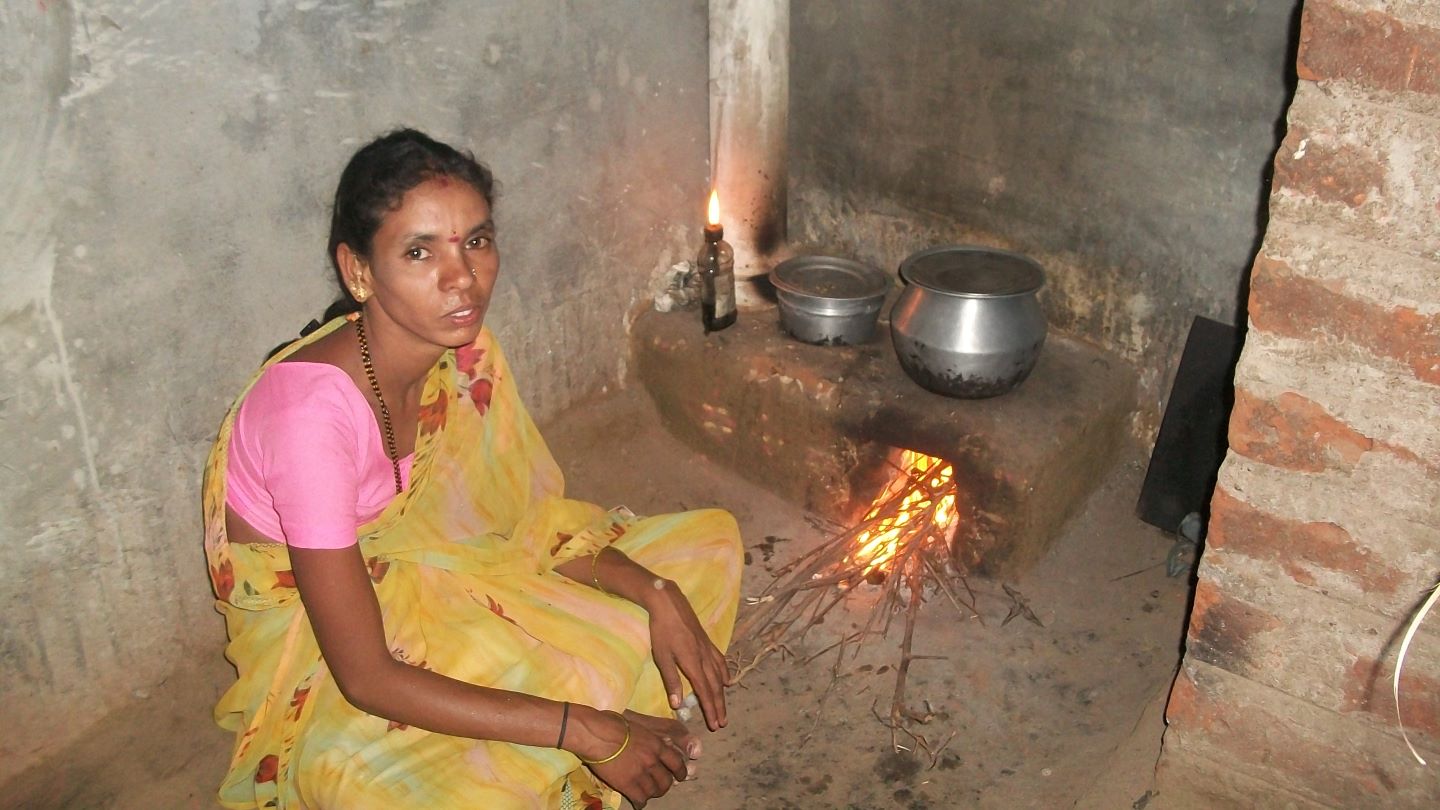
After discussion with Zilla Panchayath , Sarala Ole (fuel efficient stove) Program was taken up. Five local masons were trained on the construction of sarala ole.
The Trust first held demonstrations of sarala ole in the villages and then intimated the community on the advantages of the ole. The villagers interacted with the family of the ole and were interested in taking up construction of sarla ole.
The families contributed bricks, sand, red soil and paid Rs. 20/- for masons. The other materials like pipe, cement and grating was contributed by the Trust, which was funded by Zilla Panchayath, Chamarajanagar & GIVE INDIA.
A total of over 2000 sarala ole have been constructed. Two villages (Chikkahundi & Srikantapura) were made smokeless village, wherein all the beneficiaries in the village have sarala ole.
C. Health Clinic
A mobile health unit consisting of a Medical Officer, 2 Nurses and a Driver provides basic health services two days in a week in remote villages of C.V Pura, Honakanapura, Doddahundi, Hospura and Srikantapura which is interior and not easily accessible.
The most common health problems are Fever, Cough, Dysentery, Upper Respiratory Tract Infection, Acidity and Osteo-arthritis. The above clinic is conducted in a room, which is provided by the community.
D. Health awareness program
Village health workers training on health was conducted in collaboration with Voluntary Health Association of Karnataka, Bangalore for 6 days in 2 sessions of 3 days each, in March and April, 2001 to the members of women’s Self Help Groups.
Main topics dealt were role & responsibilities of Village health workers, relationship with community, health and development, personnel hygiene, environmental hygiene, sanitation, first aid, skin, eye, ENT, teeth problems, common ailments in adults, menstruation, HIV / AIDS, women and health, general nutrition, traditional system of medicines, reproductive health, communicable diseases and family planning methods.
A total of 45 women participated in the first session and 44 women in the second session.
A training program for Anganwadi teachers of Mysore area was conducted in. The main topics covered were General Nutrition & Anaemia, Nutrition for Pregnant & Lactating mothers, weaning food preparation, Importance of breast feeding etc.
A total of 34 anganwadi workers participated in this program.
Reproductive and Child Health Program
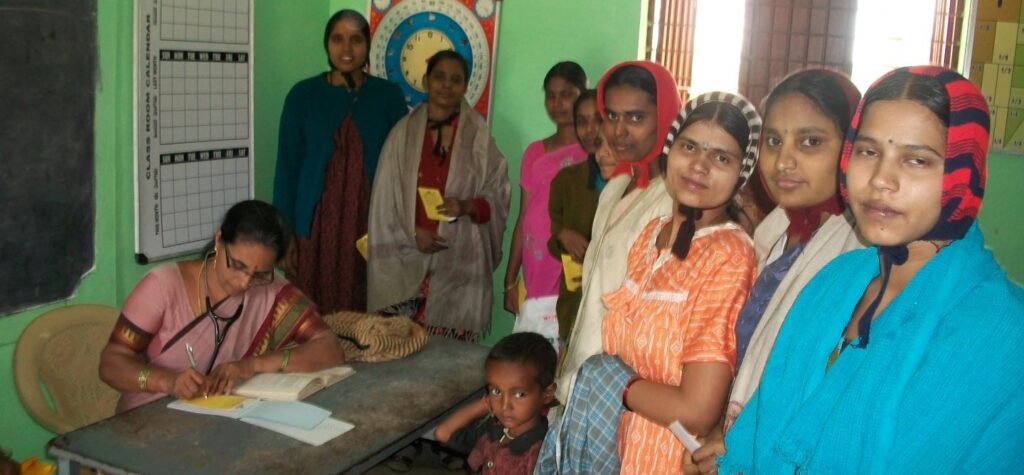
The SHG’s which had been formed by IHDUA was also used as a forum for conducting Health Education regarding Reproductive and Child Health (during December 2000- March 2002) & (during Oct 2003 – Nov 2004 – Refer next para), which was being conducted by Bharath Charitable Cancer Hospital & Institute ( Trust), which is a sister organisation of IHDUA.
Different Health Education subjects like General Nutrition & anaemia (28 sessions – 855 women), Nutrition for Pregnant women, lactating mothers & weaning food preparation (17 sessions – 487 women), Importance of Immunisation for children & pregnant women ( 21 session – 465 women), Family planning methods (11 sessions – 216 women), STD/Aids ( 17 sessions – 366 women), Menstruation & Personnel Hygiene ( 33 sessions –988 women), Cancer (27 sessions – 809 women) etc were conducted . A total of 160 sessions on above subjects were conducted.
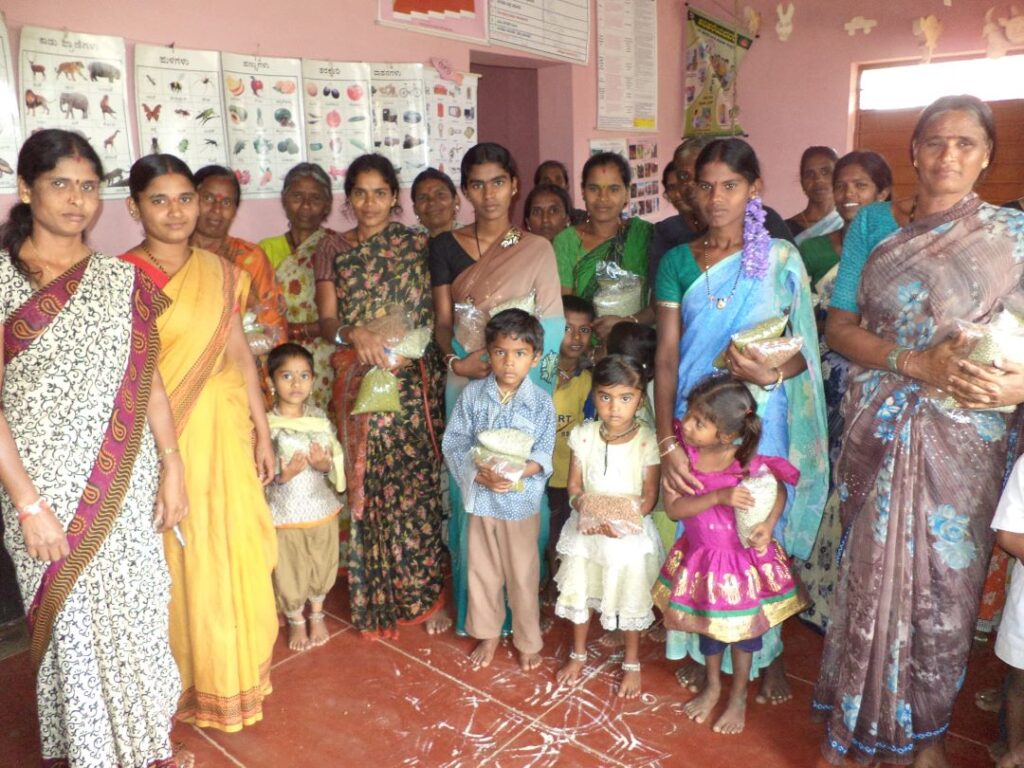
Apart from this, health checkup for pregnant women was conducted every month in our program area and a total of 3-4 days was spent every month. On an average 90-100 pregnant women would come for checkup. TT, weight, BP, Pulse and a general health checkup would be conducted to them. FS tablets were also distributed to the women. Along with this, videoshows on different health aspects were also conducted and a total of 89 video-shows covering 4943 men / women.
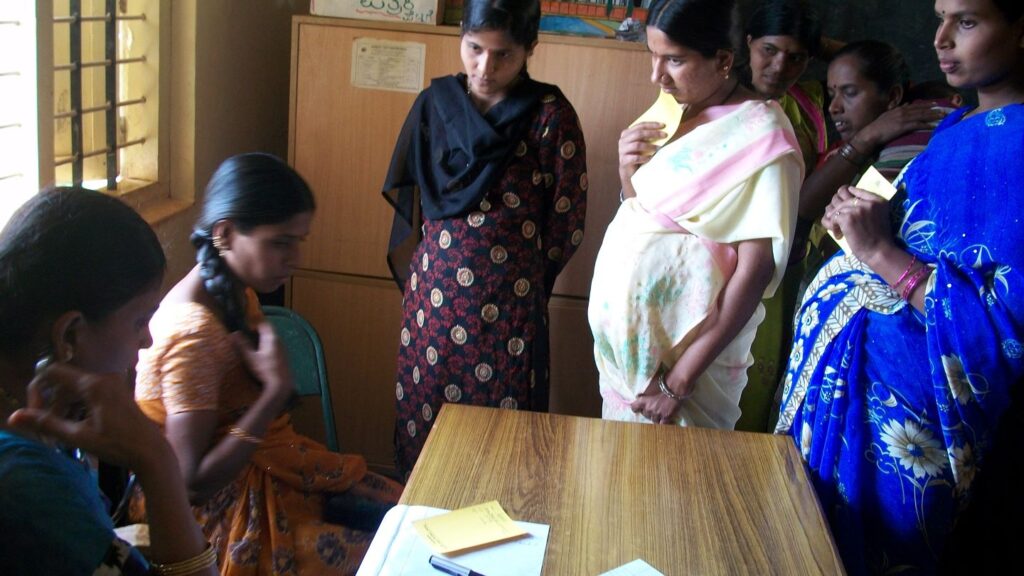
During October 2003, in collaboration with VHAK Bangalore, “RCH Project was taken up with special emphasis on RTI/STD and Cancer ” in Gundlupet taluk covering Horiyala PHC (13villages). The Project was initiated in Oct. 2003 and completed in November 2004.
Under this Project, MPWs(15), Anganwadi Workers (16), Gram Panchayath Members (16) & PHC staff (3), Dais (36) were given training on RTI/STD, Cancer & on RCH Program. Survey was conducted in 13 villages covering 1899 households and 12957 members were interviewed regarding RTI/STD & Cancer.
Subsequently, 29 RTI/STD & Cancer camps were conducted & 3237 members participated in the program. 48 papsmears, 13 blood samples & 257 patients were referred to various health institutions. 50 RTI, 4 STD & 4 cancer patients were followed up and treated.
Health checkup was also conducted in 17 anganwadi centers covering 317 children. Health education was conducted in 6 High Schools & 2 Junior Colleges covering 1239 students on Menstrual hygiene, right age for marriage, importance of immunisation both for pregnant woman (TT) and children, symptoms of RTI/STD & Cancer, etc.
Apart from this, three batches of health education was conducted to school dropouts and 7 women SHGs (157 women) were given health education on RTI/ STD & Cancer before organizing the RTI/STD Cancer camps. Awareness of PNDT Act was organized in 3 High Schools & 290 students & 77 members of women SHGs participated in 3 villages. Jathas, RCH song competition was also arranged.
All the above RCH activities could be done smoothly, because IHDUA had a good base and rapport in the community.
Cancer Awareness Program was conducted in Project area to Milk Dairy Presidents and Secretaries . Main topics covered were “what is cancer, symptoms of cancer, types of cancer, different modalities of treatment and how cancer could be prevented”. 24 participants attended the program.
“Aids Awareness Program” was conducted for ‘World Vision’, an NGO operating in Gundlupet Taluk in Mukalli colony during December 2001 . About 350 Self Help Group members attended this program.
The impact of CAPART Programme has been huge. Construction of toilet, compost pit and soak pit has gone a long way in helping the family to have a clean environment around their house. Construction of toilet helped the family members especially the aged, women folk, sick and pregnant women. Apart from this, the modesty of women and girl child is safe guarded. Once the pit is full of excreta, it can be used for their farm as organic manure, which helped the farmers to reduce cost of manure.
Construction of compost pit will benefit the family by getting good quality compost manure by turning ‘waste to wealth’. This will in turn reduce the purchase of fertilizer for the farmer and will indirectly increase the yield of crops grown.
Drainage in the village is a costly affair and its management is also difficult and to have drainage in all the villages is also not economical and viable. Even if the drainage is available, the management of waste water is a difficult affair and in many cases has led to mosquito breeding. Thus, the most feasible program is the soak pit, which can be constructed and managed by the individual family themselves. However, this program was not in demand by the community.
Kitchen garden and homestead development program will help her to get fresh different types of vegetables and fruits for consumption and improve the diet of the entire family. Thus the entire family’s health and nutritional status will improve. The revolving fund (Rs.3000/-per SHG) given has been utilized by some of the members for implementing CAPART Program. This amount has been taken as loan, as they could not raise their community contribution.
Some of the SHG’s (7) have used this amount, as revolving fund and have utilized this amount for taking up income generation programs. All the 24 SHG’s have been trained on the importance of SHG, concept, savings, importance of rotation of funds, leadership qualities, role and responsibilities of SHG representatives and management committee members, importance of participation, book keeping, etc,.
Apart from this, 15 representatives of 9 SHGs which were funded by Cauvery Grameena Bank were taken for an exposure to Kalale village where MYRADA (NGO) had SHGs which are more than 6 years old and where loans have been taken for different activities. This exposure helped them to gain confidence and to start new ventures on their own.
Thus construction of toilet, soak pit, compost pit program will help the individual families to have a clean hygienic environment to live in. Kitchen garden and horticulture development will benefit the entire family to get nutritional and additional food supplements, thus improving the health status of the entire family. The revolving fund given by CAPART will be used as revolving fund and this amount will also be used for training them on different aspects of SHG’s.
The mid year evaluation of CAPART was conducted in May 2003 and the final evaluation was conducted in November 2003. The CAPART evaluators were very happy with the way the Project was implemented. The CAPART Project has also been a big booster for the Trust, as this was the first time a Project had been approved by CAPART and the Project was successfully completed.
